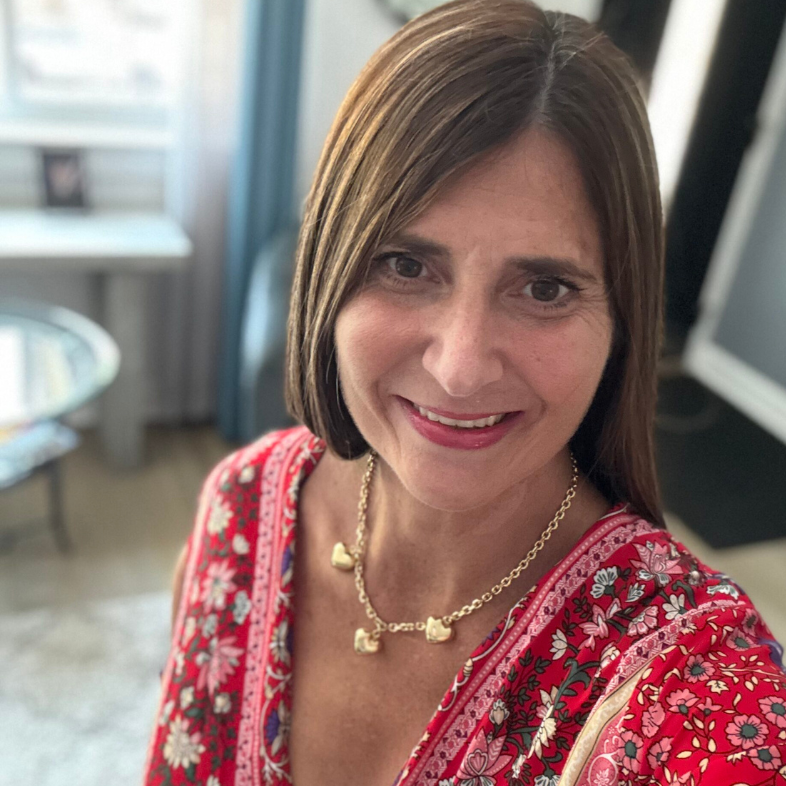
I’ve been living with Crohn’s disease for 20 years. Over that time, I’ve endured countless flares, long hospital stays, and multiple surgeries, including the removal of my large intestine and several small bowel surgeries. For years, I lived with a J-pouch because I wanted nothing to do with an ostomy bag.
In 2022, my body began to fail. Scarring and adhesions led to intestinal failure, and I woke up from surgery with an ileostomy bag and a new diagnosis: short bowel syndrome. I had once had a temporary ostomy after my colon was removed, but this time it felt final.
When my surgeon first operated, he left my J-pouch in place because I begged him to try to reverse me later. A year later, he attempted to reconnect me—but when he opened me up, the J-pouch was too damaged. Instead of a reversal, he spent the surgery repairing it. I woke up still with my ileostomy but hopeful. My surgeon promised we’d try again in six months, though he warned it wasn’t in my best interest.
I spent four weeks in the hospital recovering and was finally discharged home – weak, fragile, but determined. I didn’t know that my most terrifying fight was still ahead.
Two weeks after coming home, I started feeling worse each day, bloated, weak, in pain. The day after Thanksgiving, I saw my surgeon because I knew something was wrong. My belly was so swollen he even tried to drain it, but nothing came out. I left his office that Friday with no answers, hoping I’d eventually feel better.
That weekend, I felt as if I were dying. I told myself that if it were serious, the doctor would have done something. On Monday morning, my home health nurse came to tend to my drains. I could barely move. She checked my vitals and told me I was in septic shock. My fever was dangerously high, my heart was racing, and my blood pressure was crashing. I was just hours from death.
My husband carried me to the car and drove me to Boston because I didn’t want to go to our smaller local hospital. When I arrived, I learned I was in acute kidney failure. A scan showed a twist in my small intestine near my stoma, which had caused a gut leak. I needed emergency surgery immediately.
The last thing I remember was begging for an epidural as they wheeled me into the OR.
Ten days later, I woke up in the ICU. I had been intubated and placed in a medically induced coma so my body could heal. My belly was full of drains, my lungs were filled with fluid, and I was in so much pain I could hardly breathe, let alone move. I had just had another major midline incision, only six weeks after my last surgery.
I stayed in the ICU for another week before being transferred to the surgical floor. I couldn’t walk or breathe normally. After two more weeks in the hospital, I was still too sick to go home and was sent to a rehab facility for another two weeks. Recovery there was slow and emotionally devastating, made worse when I caught COVID. I felt so lost—no one explained what to expect after sepsis, no one gave me resources, and I was terrified about the future.
I finally went home on December 31, 2023, six weeks after nearly dying, and began to face the hardest part of all: the emotional toll. The drains stayed in for months. I felt broken, unsure if I’d ever feel like myself again. It took about three months before I started to regain some strength and realize that moving forward was up to me.
I learned through social media, not my doctors, that many of the symptoms I was experiencing were related to surviving sepsis. I started trauma counseling because the fear lingered.
Sepsis changed me. I don’t think my body will ever fully recover, and I certainly don’t feel like the person I was before. I’m grateful to be alive, but I carry the physical and emotional scars every day.
I’m sharing my story because I believe the medical community needs to do a better job of educating patients and families about sepsis. I wish I had known the warning signs; high fever, rapid heart rate, dropping blood pressure, and feeling like I was dying—so I could have gotten help sooner. I wish there were more support for survivors, because recovery doesn’t end when you leave the hospital.
Sepsis can happen to anyone. Knowing the signs and acting fast can save lives. I know this because it saved mine. I’m here today because my nurse recognized the symptoms that I didn’t.

